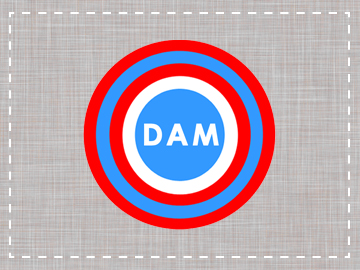A Beautiful Mind Game
Americana
With baseball season underway, I’m reminded of what it is to be a sports fan in America.
I’ve had to relearn all the advanced baseball stats like WAR (wins above replacement), VORP (value over a replacement player), BABPIP (batting average on balls in play) and DIPS (defense independent pitching statistics). In modern baseball, every pitch is picked based on batter data. Players’ strengths and weaknesses are totaled up on spreadsheets and the only real variable is the player’s ability to execute the statistically derived path toward success.
It’s is the ultimate game within a game. Nothing exists in a vacuum. One pitch is made to set up another yet to come. From the pitcher’s mound to the batter’s box, there’s strategic guesswork as players try to see their opponent’s best move and how best to react to it.
I’d nearly forgotten all those computer model complexities. For much of last year I was in South Africa writing about soccer, a sport I realized I knew almost nothing about.
It’s not that I don’t know anything about soccer. In fact, I played it as a kid and even in high school. To this day I find pickup games for the purpose of exercise and the humility that comes with publicly demonstrating my lack of athleticism. Nevertheless, the more I learned about soccer in South Africa, the more apparent my utter ignorance became.
There’s a history to soccer, one that goes further back than baseball’s, but I can only recite it with a depth of knowledge befitting a high school research paper whose only sighted source is Wikipedia. There are tactics to the global game and I made efforts to read about them in books by British journalists, but the finer points never became familiar. For all the things I wrote, for all the games I attended and conversations I had, soccer remained a foreign entity.
It could be argued that such a surface level comprehension made me ill equipped to write about the sport. It’s possible. Of course, I’d like to think that my ignorance actually perfectly suited the beautiful game.
Soccer is something truly humanist. It’s a social science or humanities field of study in contrast to baseball’s hard science and high level math. While baseball expertise is judged by one’s analytical grasp of complicated stats, soccer scribes are best informed by the universality of the human condition.
There are increasing endeavors to mathematically divine success in soccer. From sensors in players’ shoes to keeping tabs on passes and shots, there’s an attempt to unravel the enigma of eleven players producing a cohesive offensive and defensive effort. These labors inevitably fall short, which ultimately exemplifies the endearing quality that soccer possess and the stats can’t capture. That alluring feature is soccer’s emphasis on failure.
Failure is the most universal of experiences. We’ve all failed at some point and it’s those shortcomings that define us more so than the successes. Our strongest memories are associated with disappointments and losses. It is that narrative that most engenders a deep relationship with sports fans and why soccer speaks to such a large swath of people.
It’s incredibly difficult to score in soccer. Opponents of the sport often complain about the lack of goals and equate that to a lack of excitement. The reality is that even though the number of times the ball finds its way to the back of the net is low, there is plenty of action on the field.
Players surge forward, runs are made that draw defenders out of position and the offense finds a shape that will allow them to exploit any open spaces. It’s an intricate process and one done on a field too big and at a speed too fast to allow for meaningful communication. Players are forced to move about based on feel, assumptions and inspiration.
It’s all highly inefficient. The team that scores is the one that most effectively manages that predisposition toward ineffectiveness. Excitement builds only to eventually dissipate. Chances are created, but frequently go to waste. Fans rise from their seats and then regrettably return to them rather than rejoicing. Over and over again, this procession of dashed hopes happens ad nauseam.
There seem to be an infinite number of things that can go wrong in soccer. Against such great odds, it’s hard to pin success or failure on just one player. With so many moving parts, soccer is a collective failure. It’s a shared experience. The scale of the sport is simple too big for genius operating as a singularity. Goals and glory are achieved through the managed imperfection of players accounting for the fallibility of themselves and their teammates.
Baseball, too, is built around failure. A player who failed to get a hit six out of ten at bats for his career would be lauded as one of the greatest batters of all time. However, baseball’s failure is almost entirely at the individual level.
At its core, one batter faces one pitcher. That battle plays out while the rest of the offense sits in the dugout or on the basepads and the defense stands by to see if they’ll be called upon. For the most part it’s a one-on-one game with just the semblance of a team sport. The advanced stats, the ones that the serious fans are now required to know by heart, only reaffirm that individualism.
Because a batter’s RBI are dependent upon coming to the plate with runners on base, sabermatricians discount that stat. Because a bad defense might cause a pitcher to give up a run through no fault of his own, sabermatricians seek stats that single out a player’s performance irrespective of the rest of the team. They prefer metrics that remove any elements of luck or happenstance situations. It’s all a practice in reduction until a player’s individual worth can be most accurately assessed.
It’s an interesting cause. It certainly adds a greater depth of knowledge to the sport. But somehow it seems to detract from the simple beauty of the thing.
Like a poem dissected by an English class, what was once just an exquisite entity defined merely by the virtue of its existence is now a lesson in anatomy. It’s a collection of parts, highly mechanical as opposed to inexpressibly elegant. And in a way, such a thorough disassembling makes baseball even more American.
Perhaps the real American pastime is restlessness. Whether it’s pulling up stakes to move out West, endless exploration of space and science or the most basic mechanics of capitalism requiring the creation of new products, new markets and new means of profit, there is no such thing as enough. It makes sense, then, that baseball progresses in this fashion.
A sport born out of teams representing textile mills or assembled from the sons of county farmers now has some of the highest paid athletes in the world. A pastime that was once quintessentially American has now fallen off this country’s sports apex, but is adored in Latin America and parts of Asia. A game first played under codified rules in 1846 now can’t be discussed without the addition of algebraic footnotes forged by a computer capable of doing advanced calculus.
Still, beyond the sea of sabermetrics and avalanche of abbreviations there’s a beauty to baseball.
I won’t argue against the merit or usefulness of advanced stats. Doing so would be akin to trying to convince the sun to rise in the West and, truth be told, I actually like the advanced stats. What I will advise, however, is that sometimes a little ignorance is a good thing. It’s important to step back from the numbers and algorithms and just see baseball from its superficial surface.
It’s a game of tactics married to athleticism. It’s an individual sport masquerading as a team effort. It’s susceptible to the certainty of math, but forever fallible due to the human element. It’s something that’s increasingly obscured by escalating complexity, but beauty can be had by those who know how to look for it.
In all those ways, baseball is something indefinable, something beautiful and something truly American.
For more thoughts on baseball, be sure to check out Digital Americana’s National Pastime Issue in the app and in print
Close

